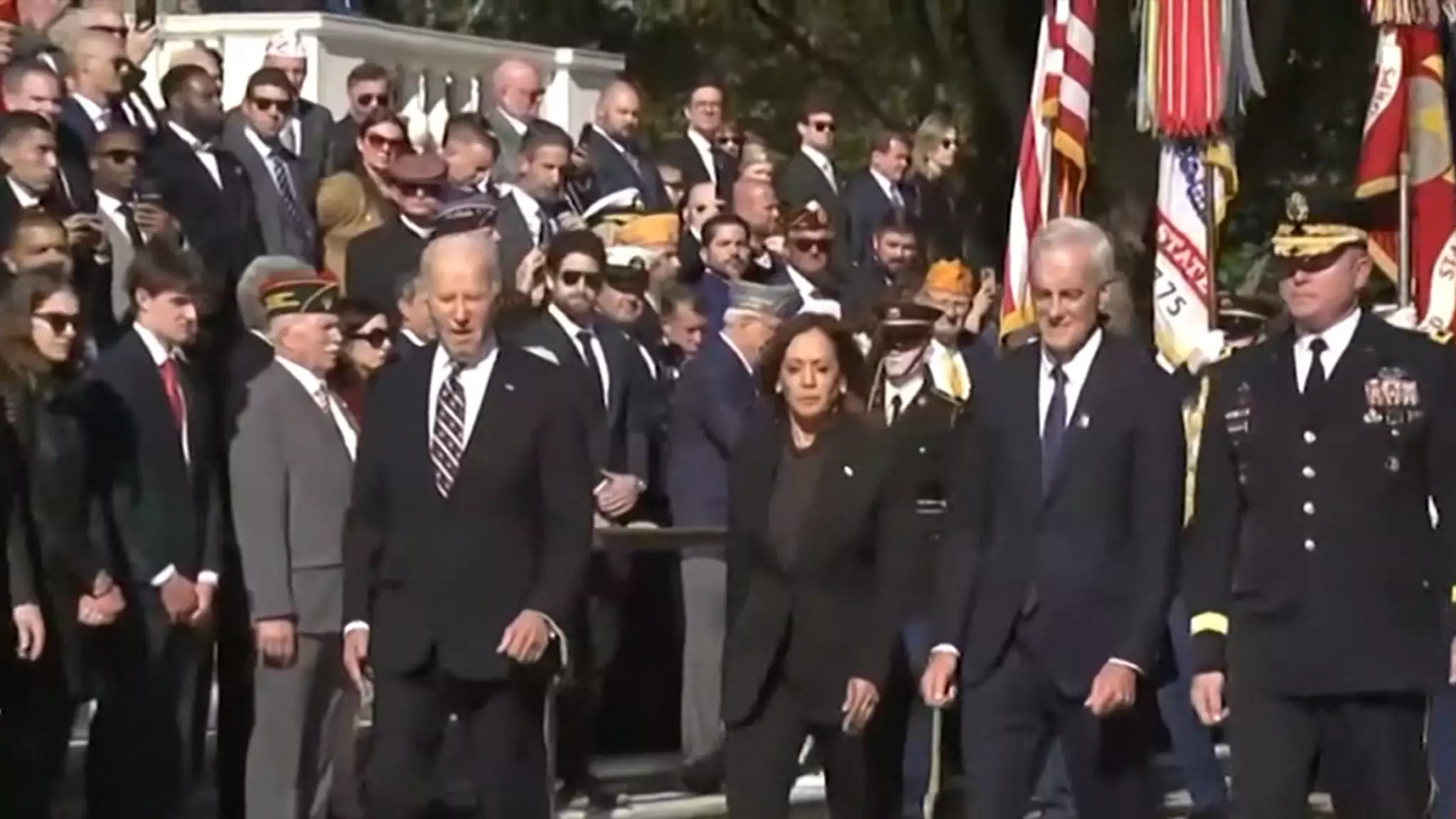The commemoration of Veterans Day serves as a poignant reminder of the sacrifices made by countless service members in defense of the United States. This year, President Joe Biden and Vice President Kamala Harris participated in a ceremony at Arlington National Cemetery, which coincidentally followed a politically charged election. Their attendance at the laying of a wreath at the Tomb of the Unknown Soldier not only underscored their respect for the military but also highlighted the somber realities of political transitions.
In the shadow of recent electoral losses, the participation of the President and the Vice President in this significant event emphasized a commitment to national unity. Their somber attire and respectful demeanor—both placing their hands over their hearts during the national anthem—reflected a shared understanding of the gravity of their roles during such a delicate period for the nation. By choosing to engage in this sacred event without making any political statements, Biden and Harris signaled a willingness to prioritize national service above the tumult of electoral outcomes.
The Symbolism of the Wreath
The act of laying a wreath at the Tomb of the Unknown Soldier is filled with historical significance. This hallowed monument pays tribute to those who have served anonymously in wars, particularly during World War I, when identification of soldiers was often impossible. For Biden, as Commander-in-Chief, placing the wreath was not just a ceremonial duty but an acknowledgment of the unrecognized sacrifices that underpin the freedom enjoyed in the U.S. today. This gesture reinforces the enduring bond between a nation’s leaders and its military history, symbolizing respect and reverence for those who have given their lives.
The president’s moment at the tomb was made more meaningful through the assistance of a decorated soldier, emphasizing collaborative leadership and the importance of mentorship in the armed forces. Through this imagery, we are reminded that governance, much like military operations, often relies on support structures, teamwork, and respect for established traditions.
Maintaining Composure in Uncertain Times
In the aftermath of an electoral defeat, it is crucial for leadership to exemplify composure and grace. The choice of Biden and Harris to focus on the solemnity of Veterans Day, rather than engage in political rhetoric, is significant in re-establishing public confidence. Their vow to ensure a peaceful transition of power, referenced amidst the complexity of their current political landscape, suggests a dedication to democratic principles that should transcend party lines.
While there may be rising pressures and challenges in the political arena, events such as Veterans Day remind leaders of their broader responsibilities. The ceremony served as an opportunity for reflection, promoting a discourse on unity and respect during times of change.
As Biden and Harris move forward, their actions on Veterans Day serve as a template for how political leaders can navigate challenging transitions. In an era where division often dominates the political discourse, returning to the fundamentals of honor and reverence for service can lay the groundwork for a more unified nation. The ongoing commitment to uphold democratic values and mutual respect is, perhaps, the enduring legacy that should resonate with all leaders, inspiring future generations to honor the sacrifices that make such leadership possible.

